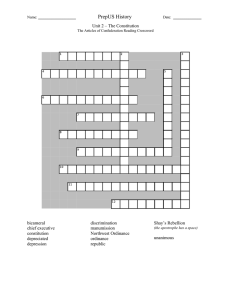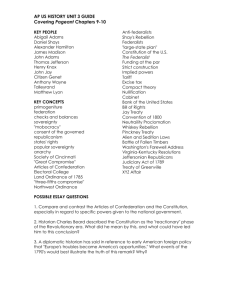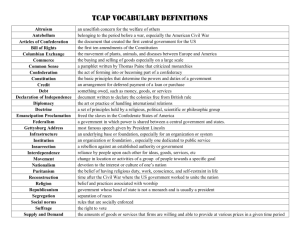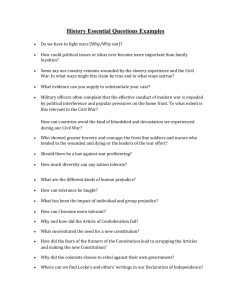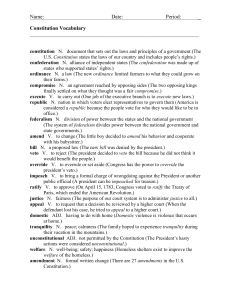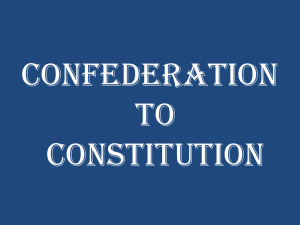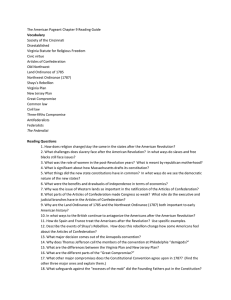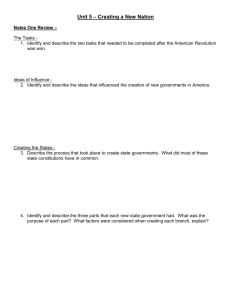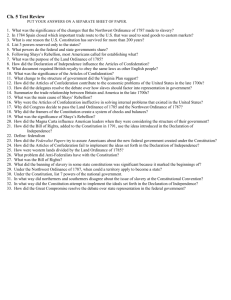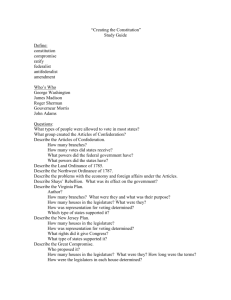2.9 The Critical Period.doc
advertisement
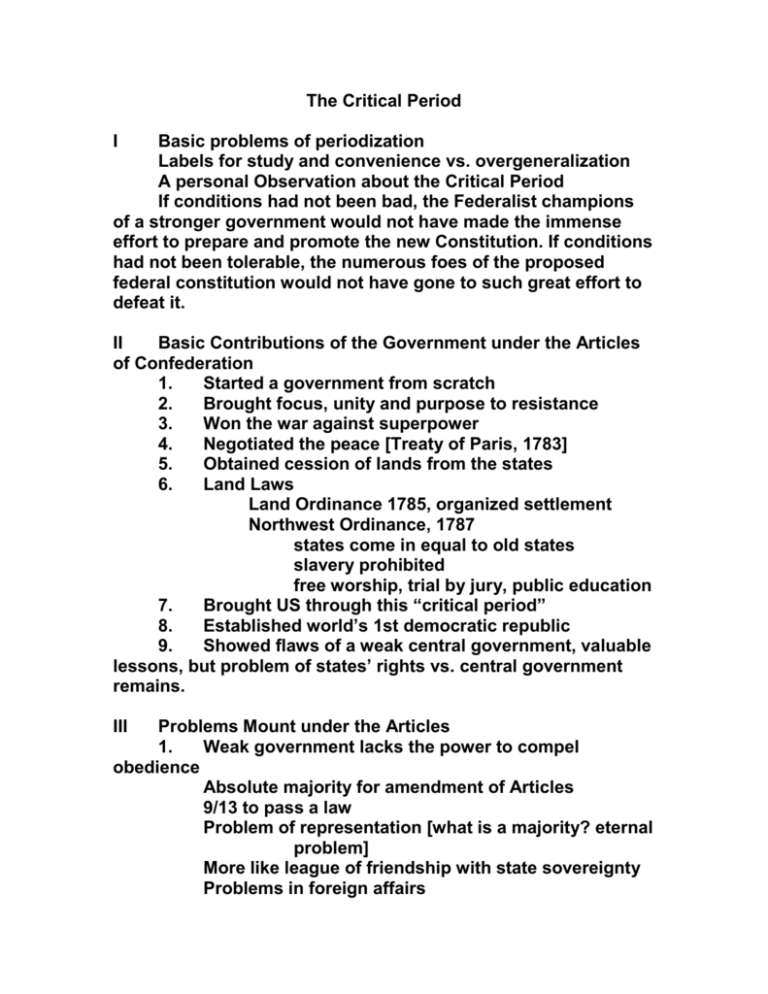
The Critical Period I Basic problems of periodization Labels for study and convenience vs. overgeneralization A personal Observation about the Critical Period If conditions had not been bad, the Federalist champions of a stronger government would not have made the immense effort to prepare and promote the new Constitution. If conditions had not been tolerable, the numerous foes of the proposed federal constitution would not have gone to such great effort to defeat it. II Basic Contributions of the Government under the Articles of Confederation 1. Started a government from scratch 2. Brought focus, unity and purpose to resistance 3. Won the war against superpower 4. Negotiated the peace [Treaty of Paris, 1783] 5. Obtained cession of lands from the states 6. Land Laws Land Ordinance 1785, organized settlement Northwest Ordinance, 1787 states come in equal to old states slavery prohibited free worship, trial by jury, public education 7. Brought US through this “critical period” 8. Established world’s 1st democratic republic 9. Showed flaws of a weak central government, valuable lessons, but problem of states’ rights vs. central government remains. III Problems Mount under the Articles 1. Weak government lacks the power to compel obedience Absolute majority for amendment of Articles 9/13 to pass a law Problem of representation [what is a majority? eternal problem] More like league of friendship with state sovereignty Problems in foreign affairs Mediterranean pirates Restoring commercial relations unable to enforce treaties Spanish threat in South Navigation of the Mississippi, New Orleans deposit British in northern posts Indians British “flooding” or “dumping” in US markets [commercial warfare] 2. financial problems of debt [virtually bankrupt and therefore unable to borrow], couldn’t coin money, no uniform currency, states issuing currency, dependent on asking states to contribute, poor credit rating abroad and with citizens, increasing chaos bad for all business 3. commercial warfare between states, chaos with international commerce [no power to negotiate trade agreements] 4. lack military power [disbanded] to enforce laws [Shay’s rebellion}, soldiers march on capitol forces Congress to flee, Newburgh conspiracy, other mob outbursts 5. Loyalists property and claims IV Charles Beard. The Constitution was conceived and carried through [unconstitutionally] by men whose financial interests had been adversely affected under the Articles of Confederation. The Beard Thesis. Define Critical 4. Forming or having the nature of a turning point; crucial or decisive. 5.a. Of or relating to a medical crisis. b. Being or relating to a grave physical condition especially of a patient. 6. Indispensable; essential. 7. Being in or verging on a state of crisis or emergency. 8. Fraught with danger or risk; perilous.
